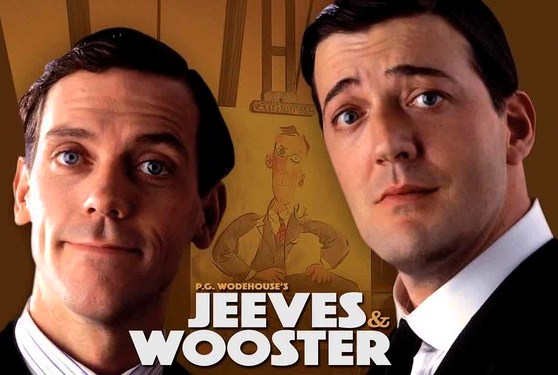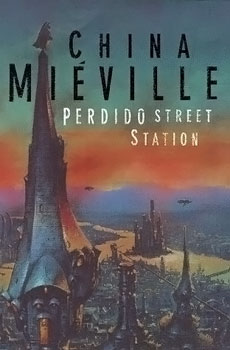In the twilight of my twenties I made my way from Evelyn Waugh to P.G. Wodehouse. There are few reading experiences quite like an evening with Bertie Wooster, the laziest of aristocrats, and Jeeves, his almost supernaturally brilliant butler. I made my way through many of the Jeeves novels, always appreciating the humor that Wodehouse infused into the first-person ramblings of Bertie Wooster. Plagued by the machinations of his many aunts, Wooster always managed to find rescue in the dependable Jeeves.

Quotes from Bertie Wooster:
“Unseen in the background, Fate was quietly slipping lead into the boxing-glove.”
“It is no use telling me there are bad aunts and good aunts. At the core, they are all alike. Sooner or later, out pops the cloven hoof.”
“She fitted into my biggest arm-chair as if it had been built round her by someone who knew they were wearing arm-chairs tight about the hips that season.”
These comic masterpieces led me to one of my favorite books in the world...
Actually written by King George VI's physician, this novel purports to be the autobiography of one Augustus Carp. As the dust jacket says, Augustus Carp, Esq. is "a deadpan comic account of a climb to the heights of mediocrity by a humorless, religious oaf in his own self-important sermonising tone." No matter how bad the humiliation or defeat, Carp manages to spin each life event into a lesson on his own goodness. One can only laugh at the absurdity of Carp's life.
Jeeves wasn't the only English butler I discovered in those years. If Jeeves were the butler as superhero, Kazuo Ishiguro's Stevens would be his more human counterpart. The Remains of the Day is a brilliant novel that explores the dying world of post-war aristocratic England. The tone is wistful and questioning. Anthony Hopkins plays Stevens brilliantly in the film of the same name.
King Rat by James Clavell took my Anglophilia to the POW camps of Japanese-occupied Asia. In those pages I experienced men laid bare by terrible circumstance...in a return to a sort of "state of nature" one might imagine an Enlightenment philosopher describing. And in that situation, one lowly corporal rises to rule his fellow POWs. For you Walking Dead fans, he could be Neegan's grandfather.
Going back in time to the Great War and its aftermath, I found myself following the fascinating life of American WWI vet Larry Darrell. The horrors of war were followed by a crisis of meaninglessness in his life, which the novel explores in depth. It held me spellbound. Incidentally, Bill Murray starred in a film version in 1984...an enjoyable role that few people remember.
As I advanced into my 30s, I was able to discover Dracula by Bram Stoker thanks to first reading Elizabeth Kostova's sequel, The Historian. The creeping horror of those books spiced up my bookshelf.

Thanks to Tom Wolfe, I finally overcame my prejudice of 20th century American literary authors. A Man in Full was my introduction to Wolfe's work. His novels are all BIG, not just in the sense of pages, but in the exploration of grand themes. I can thank that novel for my brief fascination with Epictetus and his philosophy of Stoicism. Though I thoroughly enjoyed I Am Charlotte Simmons and Back to Blood, it is A Man in Full that I loved the most. To my eternal shame, I have yet to read Bonfire of the Vanities or The Right Stuff (though I've seen both movies...the former forgettable and the latter wondrous).
It wasn't until around 2001 that I finally got serious about fantasy fiction. Another way to put that is that I read Tolkien's The Lord of the Rings. What can I say about the greatest fantasy novel of all-time? Its greatness helped lead me to other great authors. I discovered George R.R. Martin shortly thereafter and have spent most of my life since then waiting for the next book...and the next...and the next. In the meantime, I devoured all of China Mieville's New Crobuzon novels. The irony of this wasn't lost on me: Mieville stands in opposition to Tolkien, both politically and stylistically. But, of course, like all fantasy authors, he owes the Great One everything, whether he likes it or not. I embraced the weirdness of Mieville's world, even when it was hard to picture it in my head.

Sometimes a fella needs some derring-do. I found it in the work of a pair of authors. Scott Lynch's The Lies of Locke Lamora is so wickedly funny and brash that I found I couldn't read it in public without drawing undo attention to myself. Meanwhile, Patrick Rothfuss' The Name of the Wind and its sequel both kept me enthralled until the last page. Rothfuss' Kvothe and Lynch's Locke Lamora are two of the most raucously enjoyable characters ever created. We learn the adventurous history of each, from childhood on up, and we enjoy every second.
And then there was the dark, gritty fantasy of Glen Cook and Joe Abercrombie. Cook's Black Company novels paved the way for a generation of GrimDark fantasy novelists. Cook showed how villains could become heroes and heroes weren't as heroic as you might think. His "everyman" hero Croaker, physician and eventually Captain of the Black Company, strikes the reader as the kind of guy that might be willing to hang out with you. Cook's writing is of a high quality, the stories are entrancing, and the characters become real people. Unlike some series, the grand finale was well worth it.
Abercrombie's First Law Trilogy takes the "hero as villain" idea and puts it into overdrive. Logan "Nine-Fingers," aka The Bloody Nine, is a hero...or is he? The wizard Bayaz is trying to save the world, right? Or is he just a greedy old conniver? The trilogy is followed by three stand-alone novels set in the same world, with appearances by many familiar faces. I reveled in all of them.
It's hard to do justice to the many books that have impacted my life over the years. The emotional impact of a book can often depend on at what point in your life you are reading it. The kinds of things that affect me certainly have changed over the years. But what hasn't changed is the need for a well-told story. No matter how precise the writing, or how fascinating the people inside the pages, it all depends on what the author does with those people. The truth is that a reader falls in love with a book...or he does not. He grows wistful at the end of a series...or he does not. He embraces the characters' humanity...or he does not. When I look at the books I have discussed on this blog, I see many different styles, themes, moods, and characters. Some of these books are character-driven accompanied by an intriguing plot...and some of them are plot-driven accompanied by intriguing characters. But they all took hold of my emotions and moved them this way and that. Like many readers I can sometimes be guilty of preferring these fictional characters to real human beings...these outlandish plots to the plot of my own life. But that kind of escapism is okay as long as you do not retreat into it completely. There is a real world out there to discover as well. Fiction can help you understand it, even if you don't accept it.




No comments:
Post a Comment